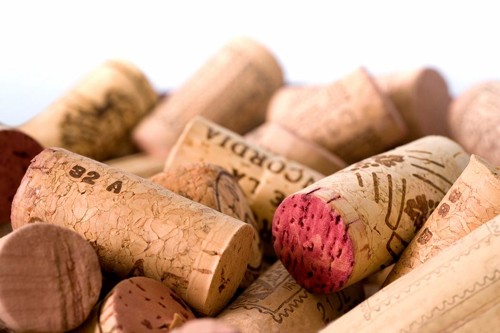
Whole Foods Market and Cork ReHarvest: Save the Cork Forests!
Whole Foods Market today announces a company-wide wine cork recycling program, making it easy for wine enthusiasts to properly dispose of corks. The first national retailer to launch a cork recycling program, Whole Foods Market will accept natural wine corks at all of its 292 stores in the United States, Canada and the United Kingdom.
Whole Foods Market is partnering with Cork ReHarvest, which has led the cork recycling movement in North America, helping collect and recycle some of the 13 billion natural corks that are produced each year.
“We often forget that cork is a renewable, recyclable material that does not belong in our landfills, said Erez Klein, wine and beer buyer for Whole Foods Market’s Pacific Northwest Region, which first launched the program that is being expanded company-wide. “Whole Foods Market is excited to make cork recycling more accessible to our shoppers, and Cork ReHarvest allows us to help sustain cork forests, a critically important resource for our planet, and to do so with near effortless local community action.”
Mediterranean oak forests that supply cork support one of the world’s highest levels of forest biodiversity and the second-highest number of plant species in the world.
Not a single tree, which can live up to 300 years, is cut down during cork extraction; instead, bark is harvested by hand every 9 to 12 years.
Through Cork ReHarvest, there is virtually zero increase in carbon footprint. Corks make their entire journey from stores to recycling centers on trucks that already are en route to each destination.
“By launching this company-wide recycling effort, Whole Foods Market is demonstrating its commitment to its green mission,” said Patrick Spencer, director of Cork ReHarvest. “Cork ReHarvest is honored that, together with Whole Foods Market and our other partner, Willamette Valley Vineyards, we have the opportunity to recycle this natural, renewable product, and to bring awareness to the environmental importance of the Mediterranean cork forests.”
West of the Rockies, corks will be delivered to Western Pulp, where they will be turned into recyclable wine shippers containing 10 percent cork. In the Midwest, corks will be sent to Yemm & Hart, which produces cork floor tiles. And on the East Coast and in the UK, corks will be transported to Jelinek Cork Group, one of the oldest cork manufacturers in North America, where old corks will be made into post-consumer products.
“Our winery was the first to use cork certified by the Rainforest Alliance to Forest Stewardship Council standards so Cork ReHarvest was a logical evolution in our commitment to the sustainability of the cork forests,” said Jim Bernau, Founder/President of Willamette Valley Vineyards. “As stewards of the land, the health of our planet comes first.
Additionally, wine made from naturally grown grapes tastes better.”
For more information on the program, visit http://www.corkreharvest.org.

The corks are turned into agglomerated corks or twin-top corks that are so inferior in quality. You can say recycle corks all day long but the problem is that there are no good quality corks anymore anyways. Corks are poor quality now because of poor harvesting techniques.
The push should be to screw caps, the wine last longer in screw caps than in natural corks. And the twin top/agglomerated cork will taint the wine after 3 years. So save the environment and make screw caps more accessible and less expensive. We need about 10 years of just leaving the cork trees alone to get the quality back up to where it was 20yrs ago.
I know screw caps do not have the pop but when you see what it can do when aging a wine and how fresh it can keep a wine, it is so worth it. I want to know why Texas has not picked up on this yet? Missouri has. I ordered 6 bottles of wine from Missouri about a year ago all from different wineries and all the good wines were in screw caps.
Screw Caps ARE the way to go!
Hi James;
I agree with you. I spoke to several wine dealers and they have said the same thing in regards to screw caps. They have a much lower percentage in spoilage (below 5%) whereas natural cork has about a 30% spoil rate and the fake cork has about a 20% spoil rate.
If you want your wine to keep, you will go with the screw caps!